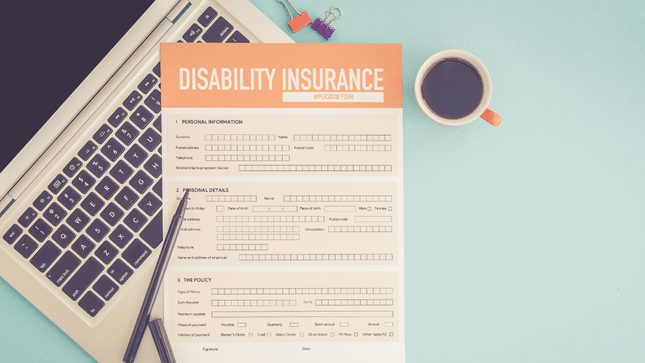While disability insurance can seem like a daunting purchase for young doctors, it provides indispensable financial protection.
There are an enormous variety of factors that determine the cost of long term disability insurance for physicians: medical history, age, specialty, benefit level, insurance company—the list goes on.
Because of all these variables, it can be difficult to boil down the average cost of long term disability insurance into a single number.
While different policies may vary widely, by understanding a few fundamental realities about disability insurance cost, physicians can approach the buying process with confidence.
1. It’s never worth skimping on true own-occupation coverage.
True own-occupation, long-term disability insurance is the only type of coverage that offers physicians the necessary income protection.
While it can be tempting to cut corners and opt for short-term or employer-provided disability insurance, these varieties offer seriously deficient coverage.
Many physicians are offered employer-provided group disability insurance as part of their employment contract.
However, these policies have significant gaps in coverage that leave doctors financially vulnerable in the event of a disability.
Most notably, employer-provided insurance may not pay out benefits for partial disabilities. Unfortunately these constitute the majority of disability claims.
Storytime:
Imagine the case of a plastic surgeon earning $500,000 who begins to suffer from carpal tunnel syndrome and can no longer operate.
Even though the surgeon can no longer practice in her specialty, her group disability insurance will not pay benefits for lost income, since she can still perform other jobs in the medical field or any non-medical fields.
The surgeon could go from earning $600,000 a year to $110,000 a year as a teaching physician – and without qualifying for any benefits under a group policy.
Group Policies
Many group policies will reduce or eliminate your benefits entirely if you are capable of earning any income. Yes, even if it’s only at a minimum wage job.
These common exclusions are nicknamed ‘coma clauses,’ because they are so restrictive that a policyholder would have to be virtually comatose to successfully claim benefits.
That’s why own-occupation disability insurance is the only way to safeguard your income in the event of a serious injury or illness.
A true own-occupation policy will pay out benefits. In the event that a disability prevents you from performing any key function of your own specialty.
If you’re still on the fence, consider the potential financial implications of purchasing disability insurance versus not purchasing it.
If you do purchase disability insurance, but you never end up needing it, the worst outcome is that you have diverted a small percentage of your income towards insurance premiums, without ever claiming benefits.
By contrast, the worst case scenario of needing disability insurance but not purchasing – it could be absolutely catastrophic, especially given the cost of long term disability insurance compared to the financial loss of a career-ending injury or illness.
Read this: Don’t Get Short-changed by Short-sighted Savings in Disability Insurance
2. The price will increase the longer you put off purchasing disability insurance.
Most young doctors have heard about the importance of disability insurance.
However, some delay buying their own policy to focus on job searches, loan repayments, and other priorities.
Unfortunately, this decision can come at a hefty cost, because the cost of long term disability insurance increases as you age.
As a general rule, the price of monthly insurance premiums will increase between 5-7% each year before a physician purchases a policy and locks in a fixed premium rate.
Physicians who put off buying their policy can end up paying thousands more in cost over the course of their career compared to physicians who purchase early and lock-in low monthly rates.
Moreover, if you wait several years to purchase a disability insurance policy, there is a greater likelihood you may develop a pre-existing condition that will be excluded from your coverage or increase the cost of long term disability insurance premiums.

3. Medical residents and fellows can receive steep discounts on disability insurance.
Residents and fellows typically qualify for a 10-20% discount on own-occupation disability insurance.
Not only do most insurance companies offer reduced rates for residents, these discounts apply throughout the lifetime of the policy. This helps to offset the cost of long term disability insurance for early-career physicians.
Most residents will already qualify for relatively low insurance premium rates simply because it costs less to insure younger, healthier policyholders.
By reducing insurance premium rates even more with a residency discount, young doctors can save tens of thousands of dollars in the long run, and protect their earnings in the event of a disability.
Even with the discounted rates, it can be difficult for cash-strapped residents to take on another monthly expense. To keep disability coverage affordable on a residency income, consider a Future Increase Option (FIO) Rider.
An FIO rider allows policyholders to pay for a lower level of coverage initially, and subsequently increase their coverage as they are able to afford higher premiums rates. This helps to manage the cost of long term disability insurance over time.
4. Pre-existing conditions will affect how much you pay.
Insurance companies want to incur as little risk as possible. And pre-existing conditions can increase a policyholder’s likelihood of becoming disabled.
As a result, the presence of a pre-existing condition can force a policyholder to pay more on insurance premiums or accept exclusions in their coverage. In severe cases, an insurance carrier may decline to offer any coverage at all.
A pre-existing condition is typically defined as any medical condition that is identified and symptomatic before an insurance policy goes into effect.
Insurance companies will conduct interviews, pour over medical records, and examine your past prescriptions and referrals to identify potential risks, all of which can influence the cost of long term disability insurance.
More on Pre-Existing Conditions
Pre-existing conditions cover a wide array of ailments, including anxiety, diabetes, MS, arthritis, and migraines.
Because pre-existing conditions can vary so widely in severity, they assess each individual situation on a case-by-case basis.
Depending on the risk assessment of a particular pre-existing condition, the insurance company will either deny coverage, exclude the condition, or cover at a higher cost.
For physicians with a pre-existing condition, it can be frustrating and discouraging to face the prospect of increased insurance premiums or broad exclusions from disability insurance companies.
Nevertheless, it is still critical for physicians with pre-existing conditions to obtain whatever disability coverage is available to them.
For example, a doctor with a history of back pain may have to accept exclusions for any disability related to back problems. While their policy will not pay out benefits if their back pain becomes disabling, their income will still be protected in the event that they suffer any other disability.
The best approach for doctors with a pre-existing condition is patience and persistence.
Pay close attention to any fine print surrounding the definition, timeframe, and exclusions of pre-existing conditions.
Plan to shop around for quotes from different insurance companies to find the best coverage option for your medical history.
Sometimes if you have a pre-existing condition you can have the exclusion reconsidered after a period of one to five years.
Therefore, you don’t assume that the exclusion will be permanent. In many cases we have been able to get them reversed.
Conclusion
For young, healthy physicians, the prospect of becoming disabled can seem like a remote possibility.
In reality, one in 20 Americans will suffer a disabling condition throughout the course of their career, according to the American Council on Disability Awareness.
When physicians put disability insurance on the back burner, it leaves them exposed to serious financial risk.
The policyholder’s health, age, and specialty all affect the cost of long term disability insurance for doctors.
However, regardless of these factors, every physician needs long-term, true own-occupation coverage.
To learn the exact cost of long term disability insurance for you, click here and complete this short form to receive free quotes.








































